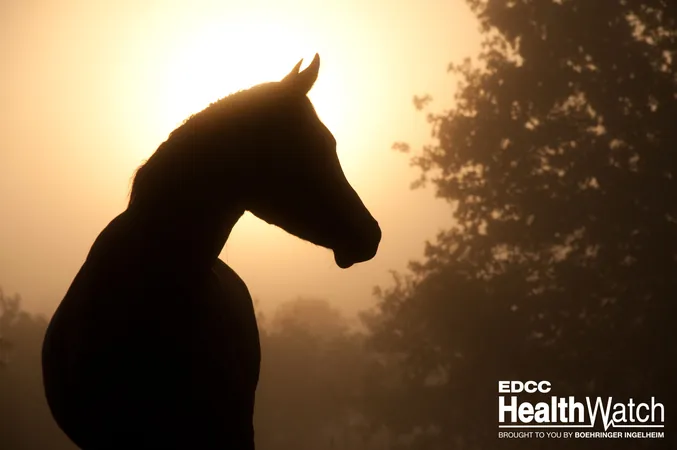
Ontario Reports 17th Case of Eastern Equine Encephalitis – What You Need to Know!
2024-09-23
Ontario Reports 17th Case of Eastern Equine Encephalitis
On September 19, veterinarians confirmed that a 13-year-old Quarter Horse in Lambton County, Ontario, has tested positive for Eastern Equine Encephalitis (EEE). This alarming case marks the 17th instance of EEE in horses across Ontario this year. The affected gelding began exhibiting sudden signs of ataxia, characterized by uncoordinated movement and weakness in both the fore and hind limbs, starting from August 29. Thankfully, he is receiving supportive care and is still alive, although he is left with lasting neurological deficits.
Understanding EEE
Eastern Equine Encephalitis is caused by the Eastern Equine Encephalitis virus, which is primarily carried by wild birds. Mosquitoes that feed on these infected birds can then transmit the virus to horses, humans, and other birds. It’s crucial to note that horses do not carry high enough levels of the virus in their bloodstream to infect other animals or humans. However, due to its high mortality rates in both horses and humans, EEE is considered one of the gravest mosquito-borne diseases in the United States.
Preventing Mosquito-Borne Illness
As the risks associated with mosquito-borne diseases grow, it is essential to stay proactive. Here are some tips to help protect your horses and yourself from EEE and other similar illnesses: 1. **Vaccination**: Ensure your horses are up-to-date on their vaccinations. This is key in protecting against EEE and other vector-borne diseases. 2. **Mosquito Control**: Implement mosquito control measures around your property. This can include draining stagnant water, using insect repellants, or installing mosquito traps. 3. **Limit Outdoor Activity**: Try to keep horses indoors during peak mosquito activity, particularly during dawn and dusk when mosquitoes are most active.
Conclusion
With the rising number of EEE cases, both horse owners and the public should be more vigilant than ever. Protecting your equine friends and taking preventive measures could save lives. Stay informed, stay cautious, and keep those pesky mosquitoes at bay!


 Brasil (PT)
Brasil (PT)
 Canada (EN)
Canada (EN)
 Chile (ES)
Chile (ES)
 España (ES)
España (ES)
 France (FR)
France (FR)
 Hong Kong (EN)
Hong Kong (EN)
 Italia (IT)
Italia (IT)
 日本 (JA)
日本 (JA)
 Magyarország (HU)
Magyarország (HU)
 Norge (NO)
Norge (NO)
 Polska (PL)
Polska (PL)
 Schweiz (DE)
Schweiz (DE)
 Singapore (EN)
Singapore (EN)
 Sverige (SV)
Sverige (SV)
 Suomi (FI)
Suomi (FI)
 Türkiye (TR)
Türkiye (TR)